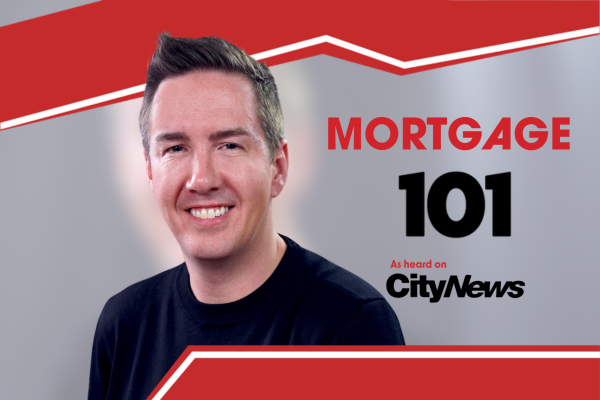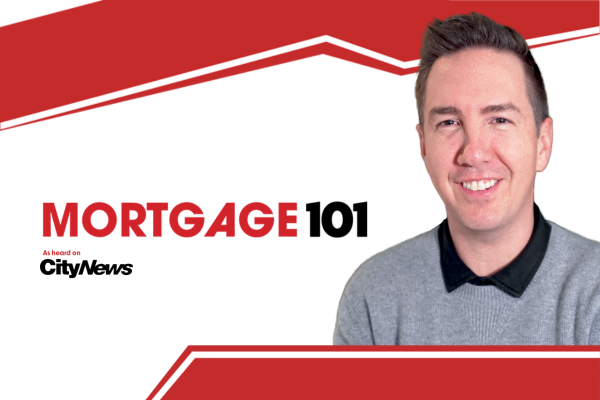What are the implications of the 30-year mortgage? Clinton and Todd sit down this episode and chat a bit more in-depth about what the 30-year mortgage means for first time homebuyers, noting the need for affordable housing options in the region, especially in urban centers like Halifax. Clinton emphasizes the importance of builders offering spec homes to cater to first-time buyers, advocating for standardized, cost-effective builds to reduce market competition and stress for buyers.
Mortgage 101 – Back to basics: Your credit score | January 2022 Part 3
In this episode of Mortgage 101 with Clinton Wilkins and Todd Veinotte, as heard on CityNews 95.7, the guys go back to the basics and discuss credit scores. Learn about how your credit can impact a refinance, living in more rural areas and interest rates.
Mortgage 101 with Clinton Wilkins & Todd Veinotte: Back to basics: Your credit score | January 2022 Part 3
Don’t feel like watching the video? Check out the transcript below.
Transcript:
“Confessions of a Halifax Mortgage Broker.”
Todd Veinotte: [00:00:00:03] So, as mentioned, Your Guide to Homeownership, it’s Mortgage 101, we like to cover all the bases and we like to educate people. And for those who never heard Clinton before, you are all about education when it comes to mortgages, right? You’re passionate about the stuff. You wrote a book about all of this stuff.
Clinton Wilkins: [00:00:16:00] Yeah, I wrote a book about mortgage lending called “Confessions of a Halifax Mortgage Broker.” I love mortgage lending so much. There’s so many nuances to mortgage lending. I think that’s what makes my job really interesting.
And you know, I’ve been doing this fresh out of university. I will say that that was almost 16 years ago, that I’ve been doing mortgage lending. And we’ve helped, you know, thousands of consumers, you know, around refinance purchase of homes, construction renewals, stuff like that.
We’ve done over 4,000 transactions here in our office for almost a billion dollars. So we’ve seen, I want to say that we’ve seen it all, but every day I see something new. So I think we have the skill set to be able to work through that and have a great team of people here that, you know, we help everyday.
Todd Veinotte: [00:00:59:13] Almost a billion dollars, eh?
Clinton Wilkins: [00:01:00:13] Almost a billion. So, you know, we’re going to have a little soiree here once soirees are a thing again. Hopefully we’ll be having a soiree very, very soon. You’re listening to us from our office here in downtown Halifax.
Two offices: One in Dartmouth and one in Halifax
We’re actually down in George Street, right across from Province House, for people that don’t know. And we’re basically right beside the art gallery of Nova Scotia. We’re in an old bank branch, which I think is kind of unique and kind of interesting. Very high ceilings.
So if you hear a little bit of an echo, it’s not the studio, it’s our 20 foot high ceilings that we have here in our office and our original office is over in downtown Dartmouth. So, you know, we’ve offices on both sides of the harbour here in Halifax, for people that are familiar with our city.
Todd Veinotte: [00:01:43:11] You’re still there, obviously. You got two locations.
Clinton Wilkins: [00:01:44:21] Yeah, we’ve two locations and we just happened to be recording our show here in Halifax. And you know, there’s nowhere I’d rather be. We really love it down here. And, you know, we’re exciting, excited for people to come back downtown.
Credit for a refinance
Todd Veinotte: [00:01:59:10] You got it. So let’s talk, we’re talking Merry Debtmas and a big part of that is credit. And if people don’t have the credit that they need, refinance is simply unobtainable, right? Or not. I shouldn’t say unobtainable.
Clinton Wilkins: [00:02:13:22] I think sometimes can become more expensive when you don’t have good credit. Having good credit can really enable you, if you’re going to do a refinance or you’re going to do a purchase of a home, or if you’re going to get a job or if you’re going to rent an apartment, good credit enables you typically to open that door. Right?
And there’s other things that you need to support to do a mortgage like income and assets. And you know, we can certainly get into that later. But credit is really, really important.
In a refinance situation, it’s a little bit easier sometimes if the credit’s maybe not as hot because there’s a lot of lenders that will lend people with all kinds of different credit matrixes. Sometimes if the credit’s maybe not as strong or maybe if they’ve had some credit issues in the past, maybe you can only finance up to 65 or 75 per cent of your home. And maybe that needs to be at a higher risk type lender for a short term while you get more established again, or maybe get yourself cleaned up. And those type of transactions are not necessarily a bad thing.
Sometimes people need a Band-Aid and, you know, a plan to kind of get to that next step. And, you know, I think you kind of mentioned it before the break, sometimes people get too indebted that they’re not able to kind of get out of that and they’re not able to pay it down. And sometimes you get maxed out and that brings your credit score down. And you know, some of these things are driven by the credit score.
Clinton Wilkins: [00:03:32:21] Maybe it’s not the be all and end all. But you know, with a lot of lenders, you have to have a kind of a minimum credit score in the prime world to do a refinance.
Credit for living in more rural areas
In Nova Scotia, obviously, we have a lot of like rural areas and there’s some not every alternative lender or maybe not even every lender that lends in Nova Scotia will lend in more rural areas. So I think that’s something to consider.
I think the credit that’s required to kind of get a prime mortgage needs to be even stronger in some rural areas. The way that lenders typically look at rural areas, they feel like it’s a little bit more risky when you’re outside of the core of the city.
The reason I think it could be more risky is because of well and septic. So that’s something that can be very expensive when something goes wrong. And they also feel if a property is on well and septic or if it’s in a more rural area, if they were to take a loss and they had to foreclose on that home, they think that it would take a longer time to sell. And in some cases, that’s true, you know?
And depending on the uniqueness of the property and stuff like that and really the area and you know, the density of that area, some lenders will lend there. Some lenders won’t. And some lenders will lend there, but maybe only at 65 or 75 per cent of that property value as opposed to the 50 per cent.
We have access to over 40 different lenders
Todd Veinotte: [00:04:50:06] Yeah. So that’s that there, that’s the lender’s discretion.
Clinton Wilkins: [00:04:55:01] Generally, or maybe like the credit matrix or their lending areas. So that’s something that you certainly need to take into account. The good thing is here because, you know, we’re doing so many transactions, we’ve access to a lot of different lenders.
I would say, you know, probably the bulk of the transactions we’re doing are in metro Halifax, but they’re certainly transactions that we’re doing all over Nova Scotia. And, you know, and some other areas as well.
So, you know, having that experience really, were able to look at it and figure out kind of what the best solution is going to be. And sometimes it’s a two or three part solution, you know, just trying to figure out what the best way to move forward is.
Back to basics: Your credit score number
Todd Veinotte: [00:05:34:13] So when it comes to credit, we hear credit scores of whatever those numbers are. Seven whatever give us kind of an education when it comes to what those numbers mean.
Clinton Wilkins: [00:05:46:04] Yeah. So there’s two credit reporting agencies in Canada. There’s TransUnion and Equifax. We primarily use Equifax as the service that we, you know, review a borrower’s credit score, and we submit an Equifax credit bureau on every application.
The credit score is out of 900. So that would be if you had a credit score of 900, then you would basically be a unicorn. And, you know, sometimes unicorns happen, maybe they exist in the wild. I don’t know. Just like reindeer might exist in the wild, but they actually do. I’ve not seen a reindeer.
Todd Veinotte: [00:06:19:16] Have you ever seen the 900?
Clinton Wilkins: [00:06:20:25] Oh yeah, I’ve seen them and I’ve seen double 900s, actually. So like a husband wife combo.
Todd Veinotte: [00:06:24:28] Oh, is that right?
Clinton Wilkins: [00:06:25:29] Yeah.
Todd Veinotte: [00:06:26:02] Wow.
Clinton Wilkins: [00:06:26:27] And sometimes it’s a false positive, and sometimes it’s like, wow, these guys actually have like the most amazing credit ever. And typically you need to have a very aged credit bureau, so you need to be maybe an older person that has a lot of history and very old accounts.
You also have to have to have kind of that perfect mix of revolving and instalment debt, and you need to use your credit. Not necessarily use it so you’re going to just to pay interest. But some people will use their credit card and then every time their statement generates, it generates with zero balance. That basically looks like it’s not active and sometimes that will hurt you.
Todd Veinotte: [00:07:04:19] Oh, right?
No credit is sometimes the same as bad credit
Clinton Wilkins: [00:07:05:10] And I have other people who have had great credit, but for whatever brilliant advice they got somewhere along the way, they’ve closed all their accounts. Nothing active. Or maybe they only have one credit card active, and having no credit is almost as bad sometimes as having bad credit. You know? Because they were told once, if you’re not using that account, get that closed.
Todd Veinotte: [00:07:31:18] Told by who? Somebody at the bank?
Clinton Wilkins: [00:07:33:07] Maybe. I don’t know. Maybe their parents. I’m not sure. And you know, not to slight our friends that work at retail branches. But a retail branch is kind of like a retail store, right? And, you know, they’re trying to deal with many different things every single day. They’re trying to deal with bank accounts and they’re trying to deal with credit cards and lines of credit and mortgages and investments.
And, you know, many different types of investments and insurance and compliance and all these things. And I do not envy people who work in retail. It is a hard job. It’s a hard job if you work in a retail clothing store. It’s a hard job if you work at a retail bank because you’re trying to keep everyone happy. And it’s very hard to keep everyone happy, let me tell you. It’s a real balance. And I think that’s where mortgage brokers win quite often is around really being that expert in one thing.
You know, we’re not trying to do it all. I can’t do it all. You know, even when I get a mortgage file, if it’s a file that’s kind of outside of my niche and the type of transactions that I do every day, you know, we’ve other people on the team and sometimes I’ll leverage their expertise to forge forward with that file.
You know, I want to make sure that when clients come in, they are going to get the best advice. And I want to make sure that they’re going to get the best advice for me or from anybody else on my team when they come in.
How to monitor your credit
Todd Veinotte: [00:09:04:15] How do people monitor their own credit?
Clinton Wilkins: [00:09:07:05] That’s a really good question, Todd. You know, there’s two free apps you can download. One’s called Credit Karma, and Credit Karma will bring in the data from TransUnion. And there’s also Borrowell and that’ll bring in the data from Equifax.
Now, the score that you see on there might not be the score that I see because, you know, they would use a little bit of different algorithms, but it’s a really good indicator of how your credit is and what’s on your credit bureau. Yeah, I would highly recommend that borrowers get both.
It’s free. And the way the reason it’s free is, you know, they’re going to try to sell you some stuff. Doesn’t everybody? You know, just don’t just don’t buy it. They’re going to try to sell you more credit and data. Maybe buying and selling.
Todd Veinotte: [00:09:52:14] Emails via emails?
Clinton Wilkins: [00:09:53:18] Emails, maybe app alerts and stuff. Like it’s not bombarding. Like, I think sometimes like they’ll send you like one email a week or
Todd Veinotte: [00:09:59:04] So not a big deal.
Clinton Wilkins: [00:10:00:01] No big deal. But it’s free. If you would prefer not for something to be free and to get maybe a little bit more in depth information. You can sign up for credit monitoring with both Equifax and TransUnion directly. But I think if you sign up with those, they’re between $20 and $30 a month for each credit reporting agency.
Todd Veinotte: [00:10:18:10] Which is pricey for most people.
Clinton Wilkins: [00:10:19:22] If you’re spending $40, $50 bucks a month just to monitor your credit. You got some cash.
TransUnion and Equifax
Todd Veinotte: [00:10:22:03] So who might be that person that’s the right fit for?
Clinton Wilkins: [00:10:28:24] You know, I think if people don’t want their data may be shared or if they don’t want to be sold things. I think going with TransUnion or Equifax directly might not be a bad thing, but you’ve got to pay. If you pay for that service, it does actually provide a couple of different things.
So I think they provide some like insurance around identity theft. Also, I think they, if you’re trying to maybe improve your credit, maybe not a terrible idea. If there’s things that are wrong on your credit bureau, you can kind of leverage that service to file like an investigation and stuff like that.
And the one other advantage of going to TransUnion or Equifax directly and paying the money, if something happens on your bureau, you’re notified immediately. So like if you have an enquiry, they’re going to let you know like that day or the next day. Where with for a while in and credit karma, they only update your credit bureau once a week.
Todd Veinotte: [00:11:21:10] Right. In the United States, we hear the term FICO. That’s that’s the equivalent?
Clinton Wilkins: [00:11:25:26] FICO Score. Yeah. So it’s sometimes what we refer to kind of like as a blended score, maybe. You know, we use the word Beacon Score. That’s just, it’s a trademark. Will Beacon be around forever? I don’t know.
But we’re actually on, there are several different versions of a Beacon Score that are available in Canada and obviously like the version that we use is specifically for what we do every day. But it’s very in depth. We see history, you know, from up to six years ago on Equifax. We see mortgage payment history. We see credit cards and all kinds of great stuff.
Todd Veinotte: [00:12:03:08] Maybe we’ll talk about refinancing our last segment. What do you think?
Clinton Wilkins: [00:12:06:08] Giddy up, Merry Debtmas.
Todd Veinotte: [00:12:07:18] All right. It’s Mortgage 101 with Clinton Wilkins and myself, Todd Veinotte right here in CityNews. We will be back.
If you have any questions, get in touch with us at Clinton Wilkins Mortgage Team! You can call us at (902) 482-2770 or contact us here.


